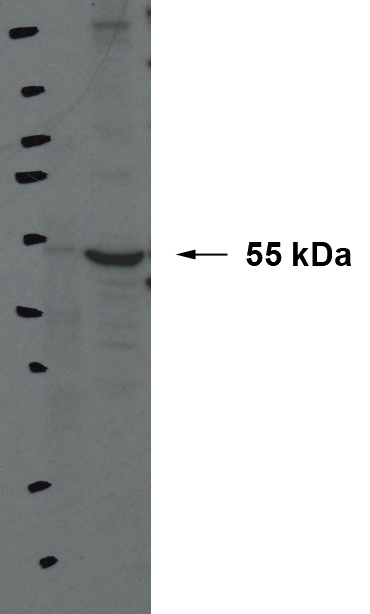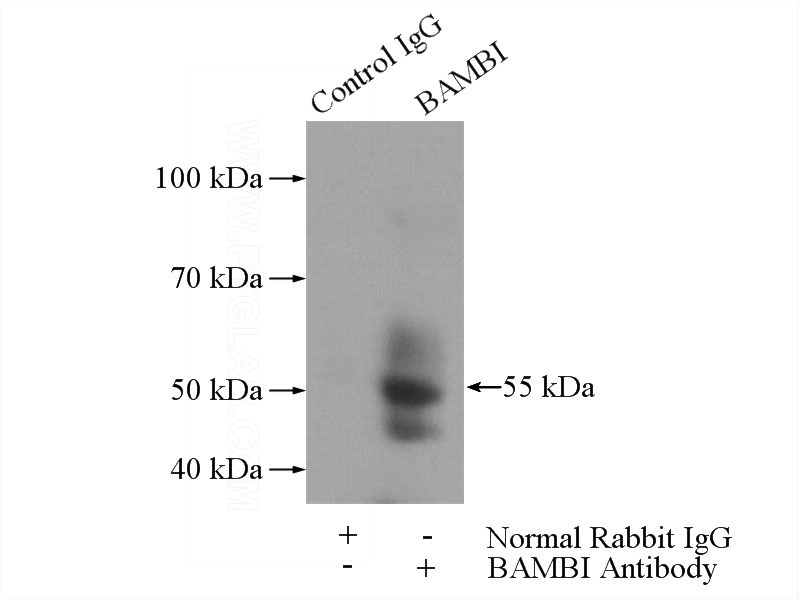-
Product Name
BAMBI antibody
- Documents
-
Description
BAMBI Rabbit Polyclonal antibody. Positive IP detected in mouse spleen tissue. Positive WB detected in rat Kidney. Observed molecular weight by Western-blot: 55kd
-
Tested applications
ELISA, WB, IP
-
Species reactivity
Human,Mouse,Rat; other species not tested.
-
Alternative names
BAMBI antibody; Non metastatic gene A protein antibody
-
Isotype
Rabbit IgG
-
Preparation
This antibody was obtained by immunization of BAMBI recombinant protein (Accession Number: NM_012342). Purification method: Antigen affinity purified.
-
Clonality
Polyclonal
-
Formulation
PBS with 0.1% sodium azide and 50% glycerol pH 7.3.
-
Storage instructions
Store at -20℃. DO NOT ALIQUOT
-
Applications
Recommended Dilution:
WB: N/AIP: 1:200-1:1000
-
Validations

WB result of Catalog No:108416 in Rat Kidney from Dr. Richard Gilbert. 55kd is Dimer of BAMBI.

IP Result of anti-BAMBI (IP:Catalog No:108416, 3ug; Detection:Catalog No:108416 1:300) with mouse spleen tissue lysate 4000ug.
-
Background
BAMBI (BMP and activin membrane-bound inhibitor homolog) is a transmembrane protein and modulator of paracrine factors that regulate adipogenesis, including transforming growth factor (TGF) superfamily members (TGF-β and BMP) and Wnt. BAMBI is a type I TGFβ receptor antagonist and contributes to endothelial and vascular homeostasis. BAMBI deregulation has been involved in the pathogenesis of various human pathologies, such as tumor progression andmetastatic capability, pathological fibrosis and metaplastic bone formation.
-
References
- Shi H, Dong L, Jiang J. Chlorogenic acid reduces liver inflammation and fibrosis through inhibition of toll-like receptor 4 signaling pathway. Toxicology. 303:107-14. 2013.
- Zhu S, Hu X, Yu Z. Effect of miR-20b on Apoptosis, Differentiation, the BMP Signaling Pathway and Mitochondrial Function in the P19 Cell Model of Cardiac Differentiation In Vitro. PloS one. 10(4):e0123519. 2015.
Related Products / Services
Please note: All products are "FOR RESEARCH USE ONLY AND ARE NOT INTENDED FOR DIAGNOSTIC OR THERAPEUTIC USE"
